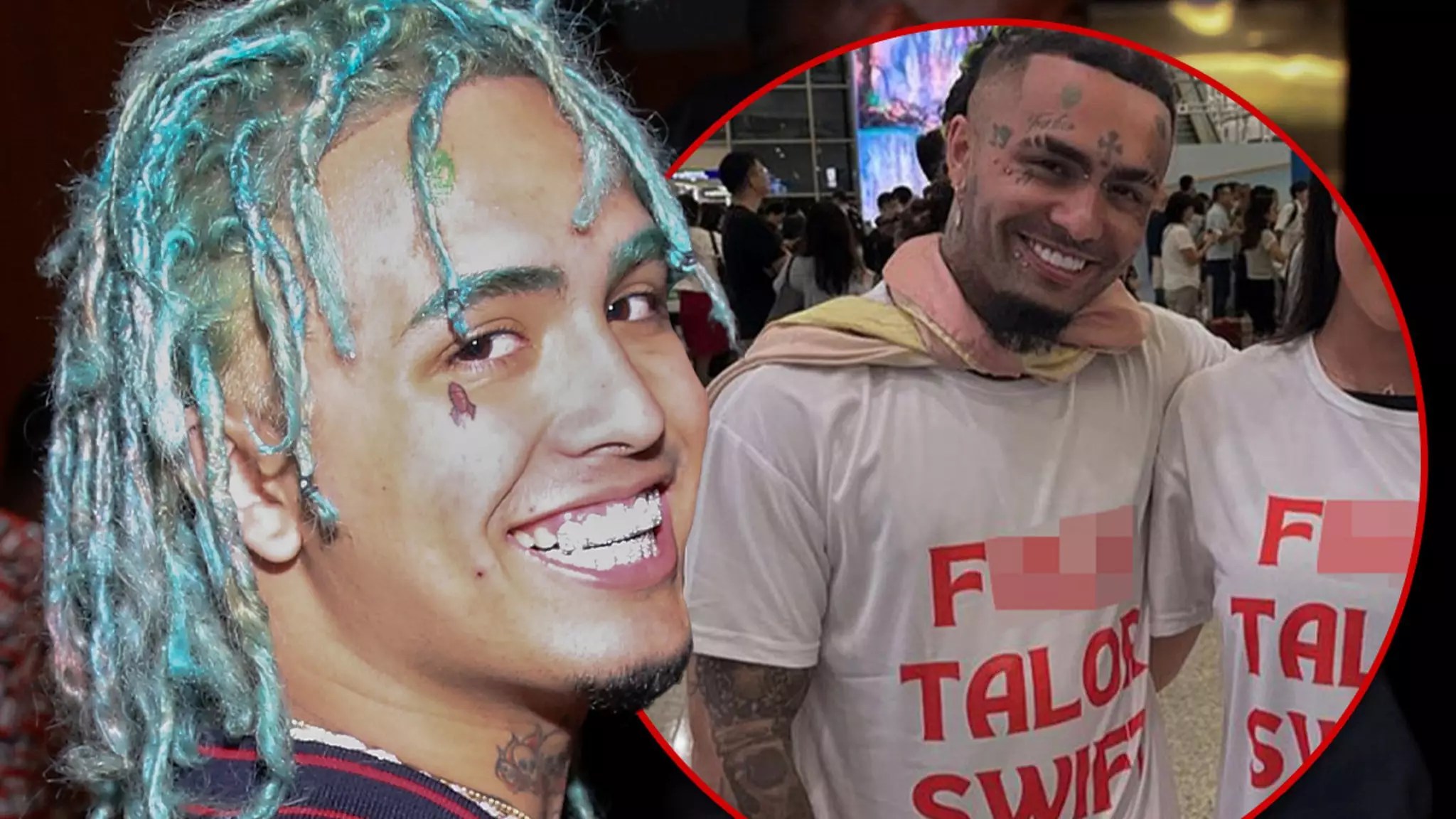The latest chapter in the never-ending saga of celebrity politics has unfolded with rapper Lil Pump vocalizing his displeasure towards pop icon Taylor Swift due to her endorsement of Vice President Kamala Harris. This feud, which symbolizes the broader political divisions in American society, raises questions about the role celebrities play in political discourse. Pump, a prominent supporter of Donald Trump, has used social media platforms to escalate his scathing attacks on Swift, culminating in a particularly provocative post displaying a t-shirt with a crude message aimed at Swift. The subtlety—or rather, the lack thereof—in his approach hints at the challenges artists face in navigating their political opinions publicly.
In today’s digital era, social media serves as a battleground for ideological clashes. Lil Pump’s Instagram post, featuring a photo of himself alongside a fan donning shirts that crudely misspell Taylor Swift’s name, highlights how personal branding can be weaponized in political debates. The explicit nature of Pump’s message, paired with the intentional misspelling, demonstrates a calculated attempt to provoke and dismiss. This not only underscores Pump’s commitment to his political stance but also illustrates a deeper trend—celebrities often resort to theatrics to gain visibility and engage followers. However, this approach can overshadow constructive conversation about policy and governance.
Both Pump and Swift hold considerable influence over their respective audiences, with the power to impact public opinion and voter engagement. Swift’s endorsement of Harris was framed around her belief that the candidate represents the values of social justice and equality, matters she champions through her platform. Conversely, Pump’s vehement opposition is steeped in a political identity that aligns with the Trump administration’s rhetoric. This clash raises an intriguing point about how artists tailor their messages to resonate with their followers while also embodying political motifs that can polarize society further.
The back-and-forth between Pump and Swift is indicative of the overall heightened tensions in U.S. political discourse, particularly as the 2024 election approaches. Swift has frequently leveraged her platform for social change, adding to her stature as a progressive voice. In contrast, Pump’s aggressive dismissal of her views may resonate with a certain segment of Trump supporters who feel underrepresented in mainstream conversations about politics. Additionally, the feud spills into gender dynamics as a male rapper verbally assails a prominent female artist, raising questions about misogyny in celebrity culture.
As celebrities continue to engage in political debates, the challenge lies in transforming these spectacles from mere entertainment into opportunities for genuine discourse. While Pump and Swift may never see eye to eye politically, their interactions illustrate the complexities at play within the celebrity sphere and its influence on the public. Ultimately, for meaningful dialogue to emerge, both artists and their audiences must look beyond the sensationalism to explore nuanced discussions about the issues that shape American life today.







Leave a Reply